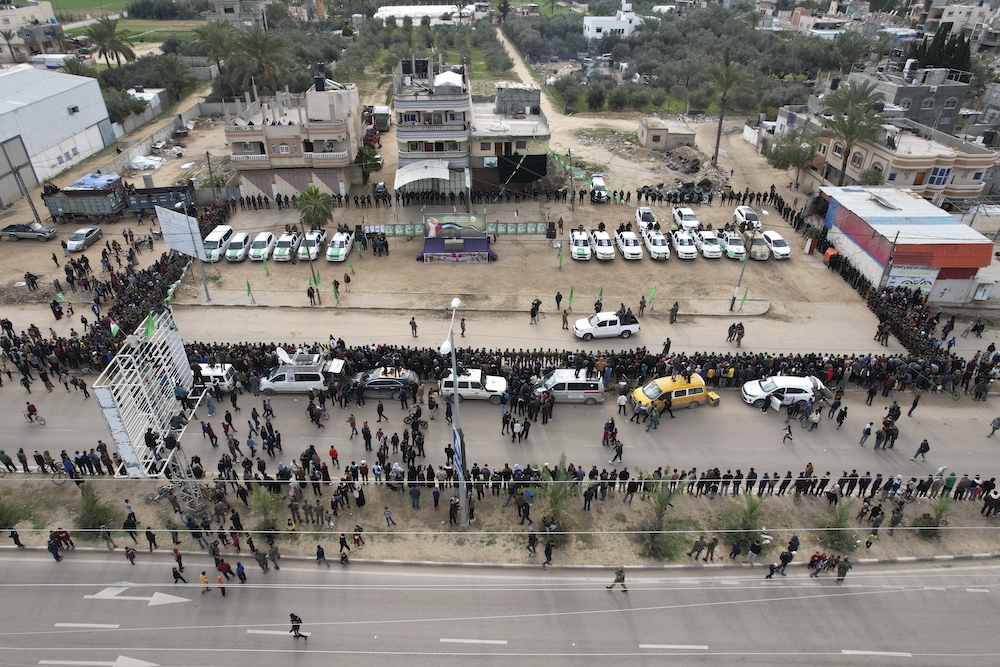DEIR AL-BALAH: Israeli strikes across the Gaza Strip overnight and into Sunday killed at least 16 people, Palestinian medical officials said.
A strike on a school housing displaced people in Gaza City killed at least six people, including four children, according to the Civil Defense, first responders affiliated with the Hamas-run government. The Israeli military said it carried out a precise strike on Hamas militants sheltering there.
A strike on a home in the central city of Deir Al-Balah late Saturday killed at least eight people, according to the Al-Aqsa Martyrs Hospital, which received the bodies. A further two people were killed in a strike in the southern city of Khan Younis on Sunday, just after midnight, according to the nearby Nasser Hospital.
There was no immediate comment from the military on those strikes.
Israel has continued to carry out daily strikes in Gaza more than 14 months into the war with Hamas. It says it only targets militants, whom it accuses of hiding among civilians, but the bombings frequently kill women and children.
The war began on Oct. 7, 2023, when Hamas-led militants stormed into southern Israel in a surprise attack, killing some 1,200 people, mostly civilians, and abducting around 250. Around 100 hostages are still in Gaza, at least a third of whom are believed to be dead.
Israel’s subsequent bombardment and ground invasion have killed over 45,000 people in Gaza, more than half of them women and children, according to the Gaza Health Ministry, which does not distinguish between fighters and civilians in its count.
The offensive has caused widespread destruction and displaced some 90 percent of Gaza’s 2.3 million people, often multiple times. Hundreds of thousands are packed into squalid tent camps along the coast as the cold, wet winter sets in.
Israel has been carrying out a major operation in northern Gaza since early October, battling Hamas in the most isolated and heavily damaged part of the territory. Tens of thousands have fled as the military has ordered a complete evacuation and allowed almost no humanitarian aid to enter.
The Israeli military body overseeing civilian affairs in Gaza, known as COGAT, said it had facilitated the evacuation of over 100 patients, caregivers and others from the Kamal Adwan Hospital and the Awda Hospital in the far north, which have struggled to function. COGAT said it had also facilitated the delivery of 5,000 liters of fuel and food packages to the hospitals.
Israeli authorities also allowed Cardinal Pierbattista Pizzaballa, the leader of the Catholic Church in the Holy Land, to enter Gaza and celebrate a pre-Christmas Mass with members of the territory’s small Christian community. The Latin Patriarchate confirmed the visit in a brief statement.
Israeli strikes across Gaza kill at least 16, Palestinian officials say
https://arab.news/4k53z
Israeli strikes across Gaza kill at least 16, Palestinian officials say

- Israel has continued to carry out daily strikes in Gaza more than 14 months into the war with Hamas






















